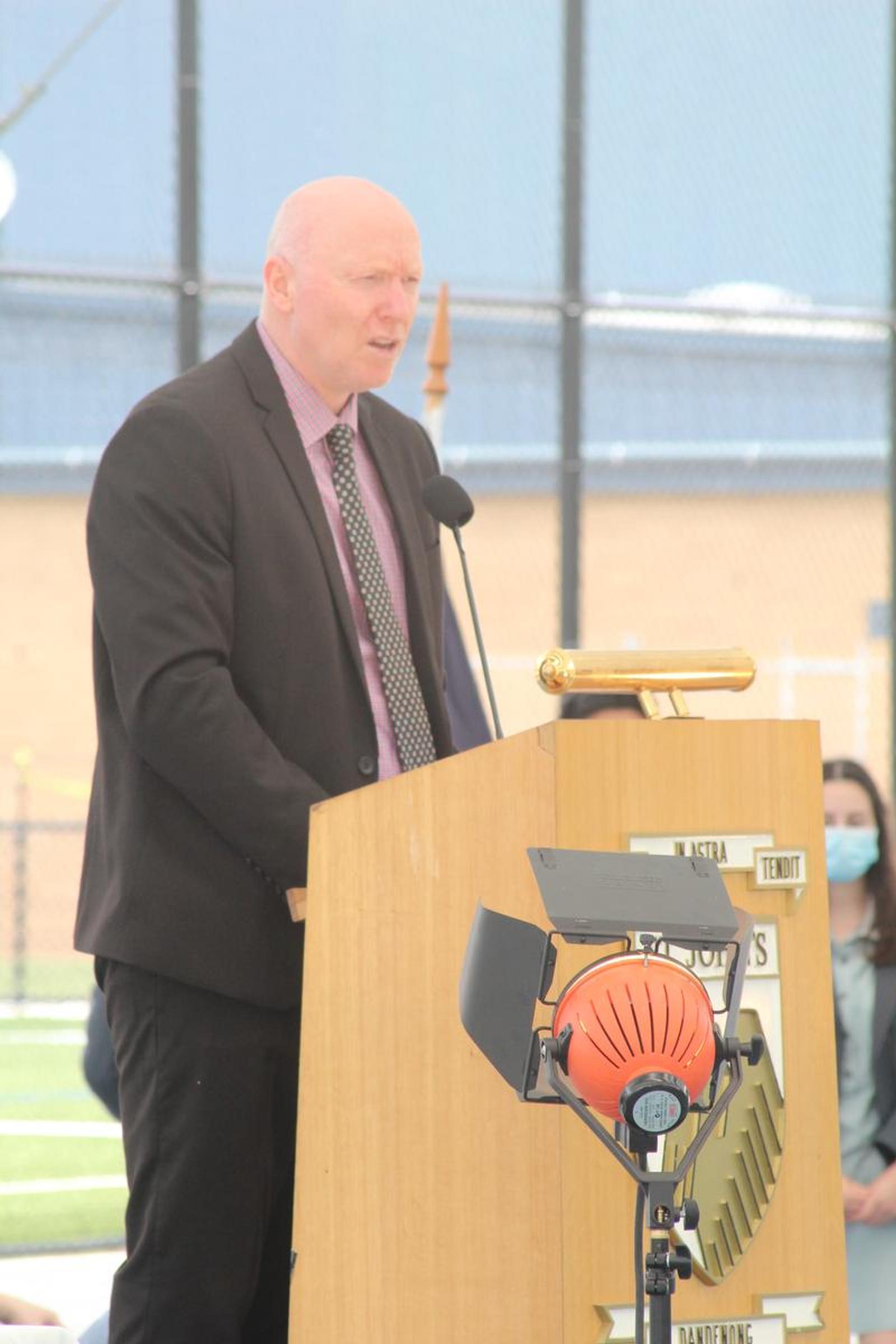Deputy Principal Student Wellbeing

Information for parents
Supporting your child’s wellbeing and mental health
We know that children and young people’s wellbeing and mental health is strongly linked to their success at school and later in life. As parents, there are many things you do every day to support your child’s wellbeing and mental health. When your child has a strong connection to family , they are more likely to feel safe, supported and secure in their day-to-day life and in their learning journey. There are many ways that you and your family can support your child’s wellbeing and mental health, including:
- providing a safe, stable and supportive home environment
- creating a supportive community around your child, including family, close friends and neighbours
- modelling positive and effective communication , problem solving and conflict resolution
- teaching your child how to express and manage their feelings and emotions
- developing routines and consistency.
Other activities that will support your child's wellbeing and mental health, include:
- getting regular exercise
- doing things they enjoy
- eating healthy and nutritious food (PDF, 304KB)
- getting enough sleep.
Getting support for your child's wellbeing and mental health
It is normal for children and young people to feel stressed, sad, angry, worried or down sometimes—especially during times of uncertainty or following a traumatic event. Sometimes, even if you and your child are doing everything you can, you may need to access some additional support for your child's mental health. As a parent, it is important to know how and when to access support.
Support at school
Supporting your child's wellbeing and mental health is a priority for their school. Teachers and other school staff care about your child and want them to be happy and well. If you notice changes in your child or your child discloses that they are not feeling great, you can arrange an appointment with your child’s Learning Mentor or House Leader. They are there to provide advice and support about wellbeing and mental health concerns, and can also help you and your child access additional support inside or outside of school.
Support outside of school
Sometimes, your child may want to talk about how they are feeling with someone that they don't know or you may need to access additional support outside of school to support your child's wellbeing or mental health. Your child may also feel more comfortable talking to someone over the phone or online.
There are many trusted organisations that are specifically available to support children and young people's wellbeing and mental health and that can provide guidance to parents about how to support their child. No matter what is going on in your child's life, they can talk to someone who cares and will help them feel better. View the websites below to find out more about each organisation and how to get in touch.
- BeyondBlue provides information and support to help everyone in Australia achieve their best possible mental health, whatever their age and wherever they live.
- Youth BeyondBlue a dedicated site for youth that provides information, resources and support for young people dealing with depression and/or anxiety.
- headspace provides tailored and holistic mental health support to 12-25 year olds. headspace has a focus on early intervention, working with young people to provide support to help get them back on track and strengthen their ability to manage their mental health in the future.
- Parentline is a confidential phone and WebChat counselling service supporting parents and carers of children.
- Department of Children, Youth Justice and Multicultural Affairs provides information about support available for parents and carers in Queensland.
- CYMHS (Child Youth Mental Health Services) provides information about referral requirements and includes opening times and contact information.
- Student Wellbeing Hub provides high quality, age-appropriate information and resources targeted specifically to educators, parents and students to support student wellbeing and safety.
